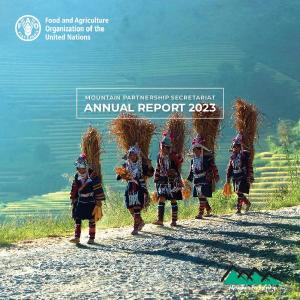
The Mountain Partnership is the United Nations alliance dedicated to mountain peoples and environments. The Secretariat of the Mountain Partnership is hosted by FAO. The 2023 Annual Report of the Mountain Partnership Secretariat (MPS) outlines the MPS' key achievements throughout the year.
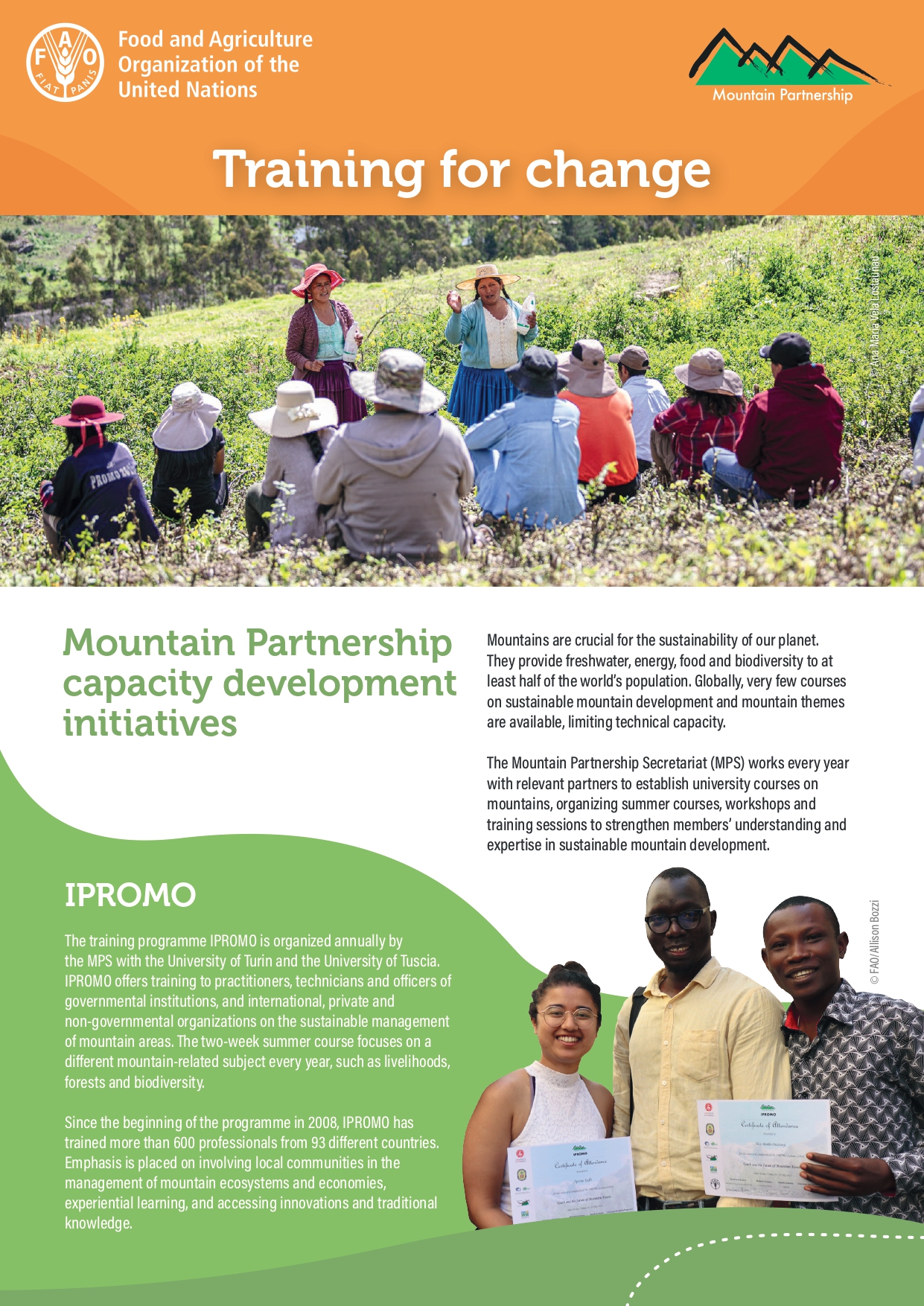
This fact sheet is published by the Mountain Partnership Secretariat of the Food and Agriculture Organization of the United Nations. It details the Secretariat's capacity development initiatives aimed at enhancing expertise in sustainable mountain development and addressing the limited availability of specialized courses on mountain themes. Each year, the Secretariat collaborates with partners to establish university courses and organize summer courses, workshops and training sessions.
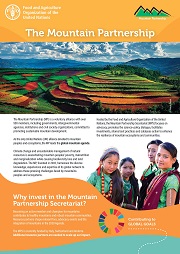
This fact sheet, published by the Mountain Partnership Secretariat of the Food and Agriculture Organization of the United Nations, outlines the mission and impact of the Mountain Partnership. Established in 2002, the Mountain Partnership boasts over 550 members, including governments, intergovernmental agencies, institutions and civil society organizations. It harnesses the diverse knowledge, experiences and expertise of its global network to address pressing challenges in mountains.
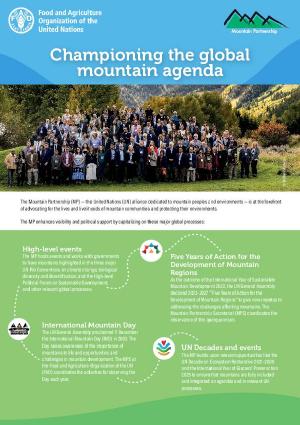
This fact sheet is published by the Mountain Partnership Secretariat of the Food and Agriculture Organization of the United Nations. It highlights the Mountain Partnership's advocacy activities aimed at increasing global attention and securing tangible commitments for sustainable mountain development. As the only United Nations alliance dedicated to mountains, the Mountain Partnership elevates visibility and political support for the mountain agenda by capitalizing on major global processes.
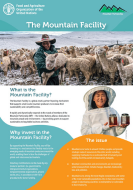
Published by the Mountain Partnership Secretariat of the Food and Agriculture Organization of the United Nations, this fact sheet introduces the Mountain Facility, a global financing mechanism designed to enhance the sustainability and competitiveness of small mountain producers. Mountains, home to 1.1 billion people and strategic natural resources, face escalating pressures from climate change, disasters and biodiversity loss.

This fact sheet is published by the Mountain Partnership Secretariat of the Food and Agriculture Organization of the United Nations. It outlines the importance of mountains for people and the planet, highlighting that mountains are home to around 1.1 billion people. Covering about 27 percent of the earth's land surface, mountains host 25 of the world's biodiversity hotspots and supply freshwater to an estimated half of humanity. However, mountains face significant threats and challenges.
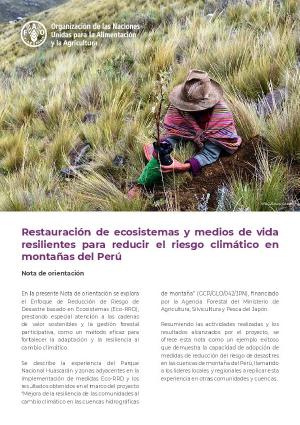
La presente nota de orientación explora el Enfoque de Reducción de Riesgo de Catástrofes basado en Ecosistemas. Se presta especial atención a las cadenas de valor sostenibles y a la gestión forestal participativa como un método eficaz para fortalecer la adaptación y la resiliencia al cambio climático. Se describe la experiencia del Parque Nactional Huascarán y sus zonas adyacentes.
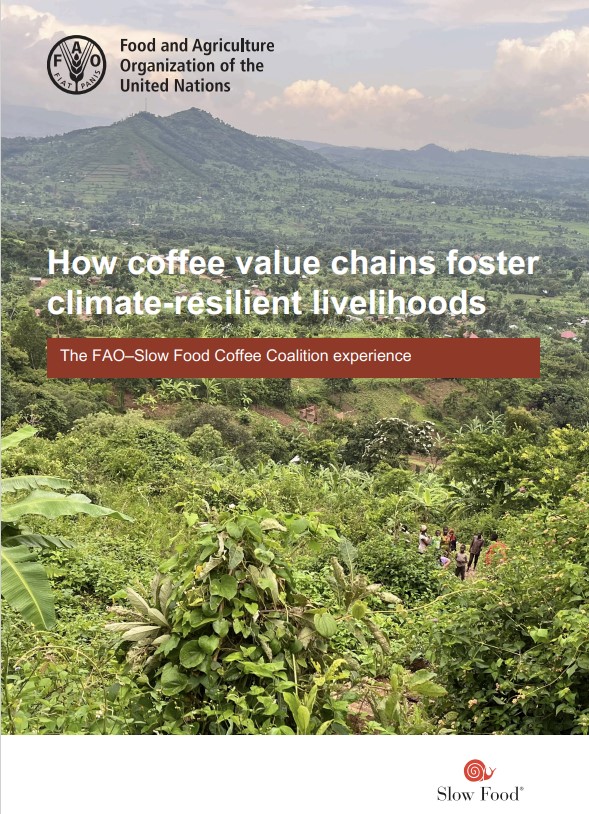
This document introduces how agroforestry coffee improves resilience and ensures livelihoods in the context of climate risk and access to markets. Our intention is to reflect on the benefits and constraints of agroforestry coffee production, good practices for facilitating a fair and sustainable value chain, and what is needed for promoting and maintaining the adoption of said practices. It presents activities in Malawi and Uganda by the Slow Food Coffee Coalition.
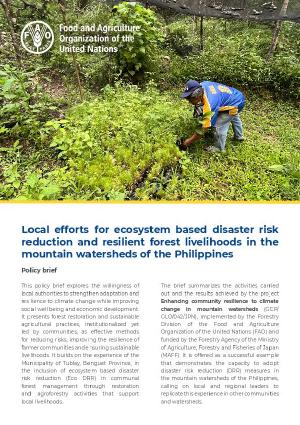
This policy brief explores the willingness of local authorities to strengthen adaptation and resilience to climate change while improving social well-being and economic development. It presents forest restoration and sustainable agricultural practices, institutionalized yet led by communities, as effective methods for reducing risks, improving the resilience of farmer communities and ensuring sustainable livelihoods. It builds on the experience of the Municipality of Tublay, Benguet Province.
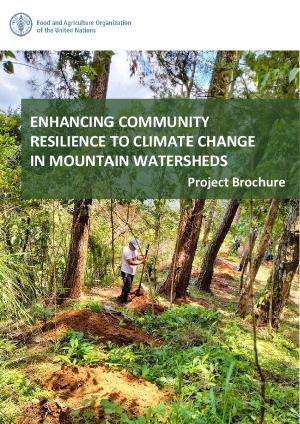
The project Enhancing community resilience to climate change in mountain watersheds (GCP/GLO/042/JPN) is implemented by the Forestry Division (NFO) of the Food and Agriculture Organization of the United Nations (FAO) and funded by the Forestry Agency of the Ministry of Agriculture, Forestry and Fisheries of Japan (MAFF). It aims to strengthen capacities of institutions and communities in forest-based disaster risk reduction in mountain watersheds and increase the resilience of local populations.
-(2)fbfc98ee-1e45-4580-b483-4902b49a3da5.png?sfvrsn=d4e69c22_1)
The sixth learning exchange of the International Network of Mountain Indigenous Peoples was held between 30 May and 4 June 2024, bringing together over 50 Indigenous Peoples, representing 137 mountain communities from Peru, Bolivia and China, and 10 villages from semi-arid Kenya, along with civil society, research, government and donor organizations from Bolivia, China, France, Kenya, Peru, United Kingdom and the United States of America.
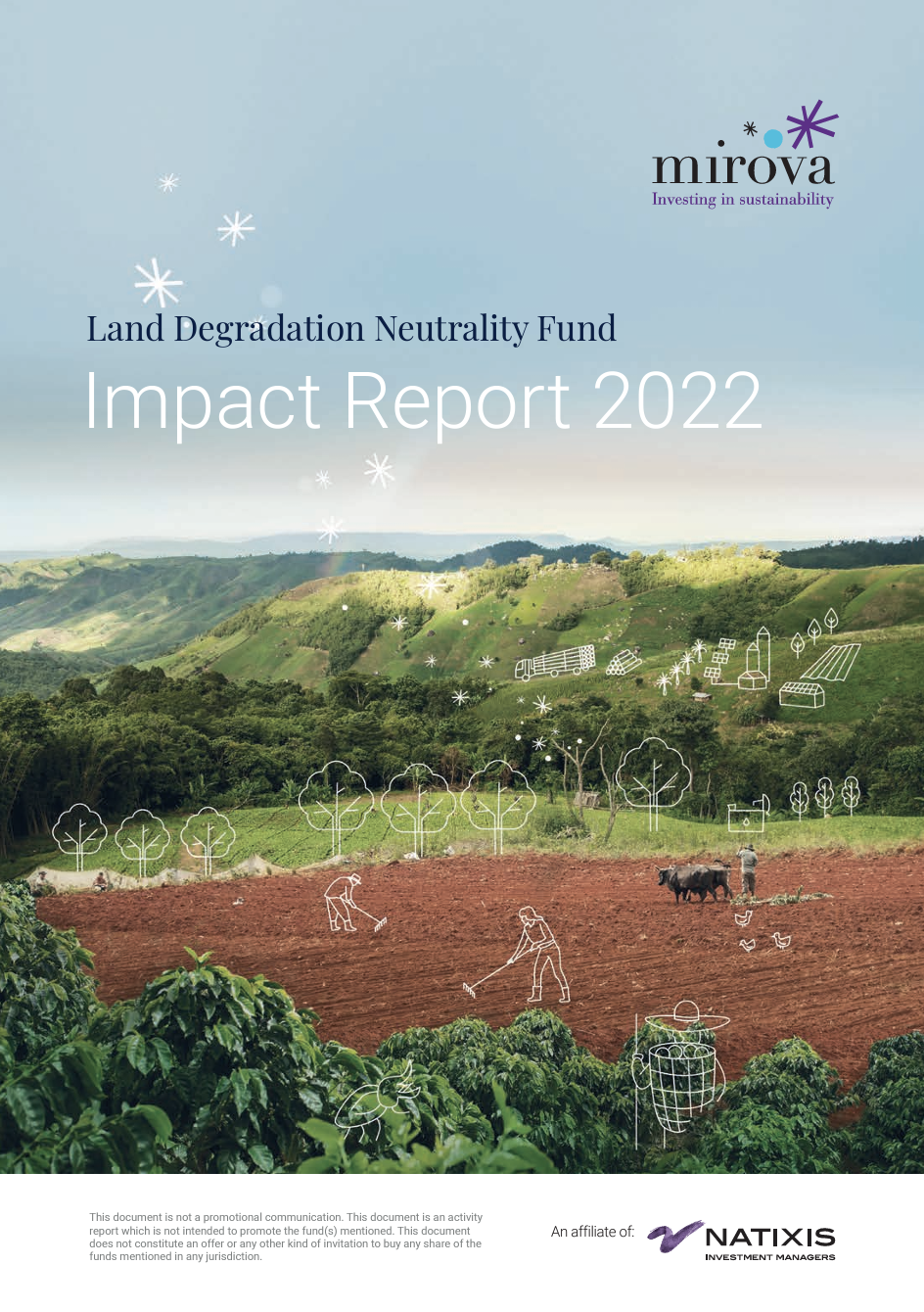
After four years of full operations and successful deployment, the Mirova team announced the closing of the 10th investment of the Land Degradation Neutrality (LDN) Fund in October 2022, a major milestone in the development of the sustainable land use strategy. The projects supported by the fund since 2018 have demonstrated positive impacts on the ground. This report highlights how these projects are able to unleash potential.
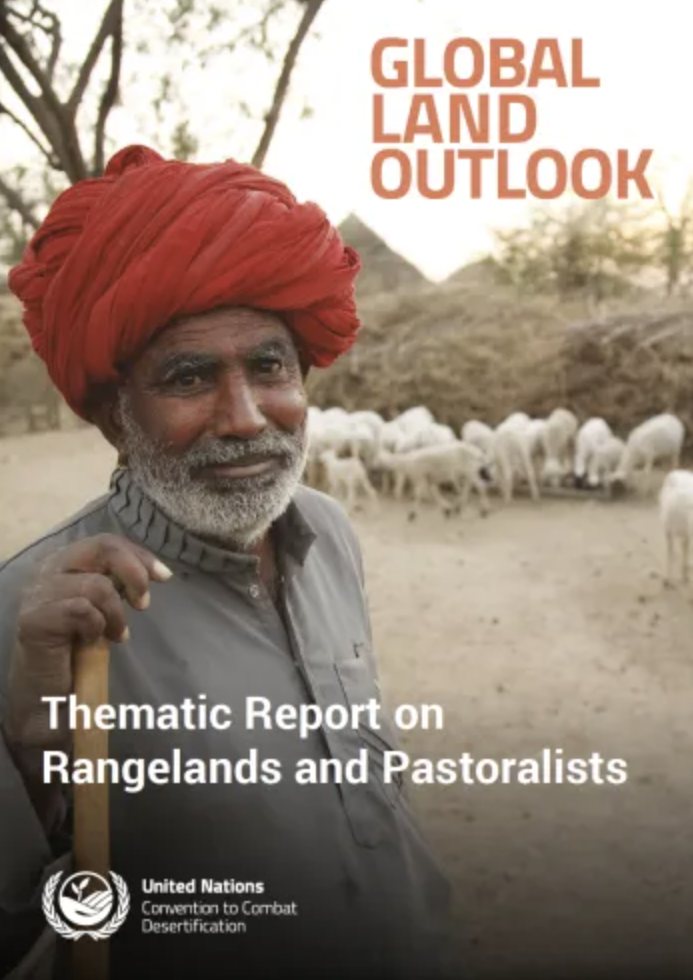
In anticipation of the International Year of Rangelands and Pastoralists (IYRP) in 2026, this report serves as a catalyst for global awareness and action. It analyses numerous case studies and good practices from around the world, drawing on the experience and lessons learned, and advocates for a new paradigm to inspire governments, donors, and other stakeholders to prioritise rangeland health in cooperation with local communities.
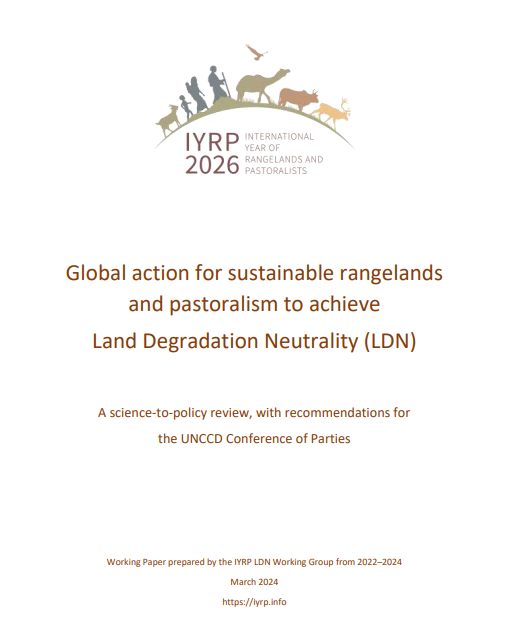
Global action for sustainable rangelands and pastoralism to achieve Land Degradation Neutrality (LDN): A science-to-policy review, with recommendations for the UNCCD Conference of Parties is a working paper prepared by the IYRP LDN Working Group from 2022-2024. This report covers the challenges and threats to rangelands and pastoralism along with eight calls to action.
-(8).png?sfvrsn=7a81831_1)
The sixth INMIP learning exchange took place at the ANDES Yachay Kuychi Pluriversity in the Sacred Valley of the Incas. The exchange included walking workshops in the Potato Park and Chalakuy (Barter) Park Biocultural Heritage Territories. It included an international policy forum on climate change and agroecology in mountains, and culminated in a Declaration targeting climate and biodiversity policymakers.

Mountain Research and Development Vol 44, No 1 is available online and open access. A study across the Andean region details how immigration is linked to an increase in exotic plant species, posing challenges for sustainable management of local ecosystems and biodiversity reservoirs. Research of heterogeneity provides a typology to support tailored policies. A review of pastoralism and related policies shows integrated strategies are key to sustaining this production system and culture.

Mountains are home to a variety of ecosystems that provide vital services. Mountain ecosystems cool local temperatures, increase water retention, provide carbon storage, and reduce the risk of erosion and landslides. But mountain ecosystems are at risk from planetary crises. This publication analyses several mountain ecosystem restoration projects and recommends how the UN Decade’s Ten Principles for Ecosystem Restoration can be applied to mountain ecosystems.
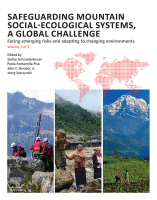
This publication reviews research on mountain ecosystems, highlighting their vulnerability to climate change, urbanization, and other global shifts. It emphasizes the need for sustainable development in line with UN frameworks like the Sustainable Development Agenda 2030. The book explores the global significance of mountains, regional challenges, and potential solutions, concluding with technologies that address these issues.
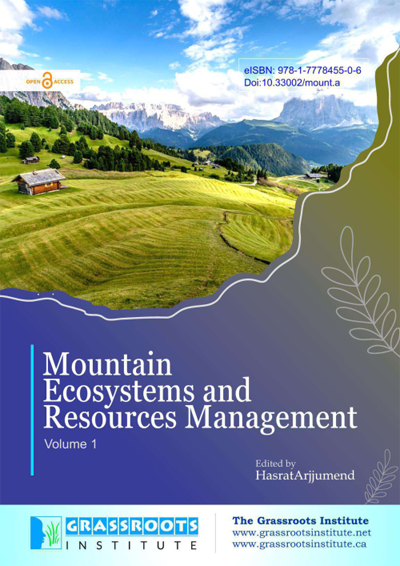
"Mountain Ecosystems & Resources Management" explores the complexities of mountain ecosystems and sustainable resource management. Spanning 24 chapters, it covers topics like biodiversity, watershed management, and ecotourism, highlighting the balance between development and preservation. Through global case studies, the book showcases successful initiatives, serving as a guide for policymakers and environmentalists to protect these vital landscapes for future generations.
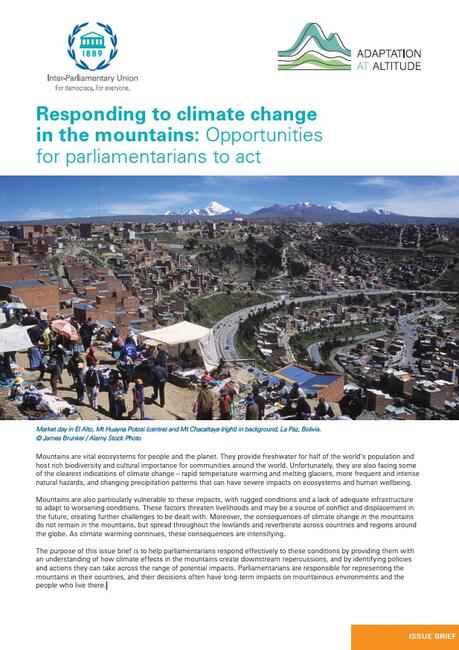
Mountains are crucial ecosystems, supplying freshwater to half the world's population, hosting diverse biodiversity, and holding cultural importance. Climate change severely impacts these regions through rapid warming, glacier melt, and increased natural hazards. This brief helps parliamentarians address these challenges by understanding the downstream effects and identifying policies and actions to mitigate the impacts on mountain ecosystems.